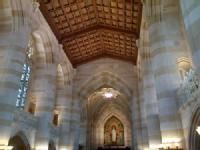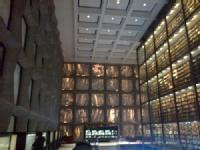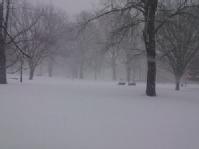Jenny Crane: A Visit to Yale
I w as lucky enough to be awarded one of these Fellowships in 2015, and for two weeks in Spring visited Yale University. My research surrounds child protection in the post-war period, and so I made contact with two relevant research groups: the Initiative on the History of the Sexualities and the Violence and Health Group. I presented my research to the Student Working Group of the Violence and Health Group, and it was great to get feedback from a new audience, and particularly to hear from researchers so engaged in the interplay between academia and policy. The Violence and Health group is very inspiring in this respect, and works directly with the World Health Organisation and a range of international campaign groups and agencies to create evidence-based policy around violence prevention.
as lucky enough to be awarded one of these Fellowships in 2015, and for two weeks in Spring visited Yale University. My research surrounds child protection in the post-war period, and so I made contact with two relevant research groups: the Initiative on the History of the Sexualities and the Violence and Health Group. I presented my research to the Student Working Group of the Violence and Health Group, and it was great to get feedback from a new audience, and particularly to hear from researchers so engaged in the interplay between academia and policy. The Violence and Health group is very inspiring in this respect, and works directly with the World Health Organisation and a range of international campaign groups and agencies to create evidence-based policy around violence prevention.

between science, sexuality and the law, where we analysed papers circulated by three prestigious scholars in the field. One of these scholars was Michael Grossberg, from Indiana University, who is in the process of writing a book about child protection in America. It was exciting to read the early draft chapter from Michael's work, and to discuss the connections and parallels between the histories of childhood and child protection in Britain and America. Although it is not always possible, meeting in person seems to me an easier way to make a long-lasting connection with another researcher. During my time at Yale, I also utilised the Beinecke Library, which is an incredibly beautiful building and, perhaps more importantly, where I found materials which will substantially benefit my thesis.
Differences in institutional culture are difficult to pinpoint, but I would highlight a couple of things. First, the American doctoral programme is longer, and certainly the Yale students I met had an impressive and broad grasp of the issues in and around their fields, and the luxury of spending a year or so choosing their specific research topic. Also given their additional time, the history students saw conducting interviews as a necessary and vital part of their studies, and most had u ndertaken 20 or 30 oral histories. I was inspired by how proactive and confident the students had been in tracking down and contacting relevant individuals. Students and staff in the History of Sexualities group were engaged in highly exciting and cutting-edge research. At the same time, these scholars commented to me that American academics were, in general, often more reluctant to study emotive and difficult topics than their European counterparts. One student told me that she was surprised, when recently attending a conference in Vienna, to learn that the history of paedophilia was an object of study in Europe, as she did not believe that American scholars would feel able to engage with this area. I would be very interested to hear if any readers had any thoughts on the national differences which able or disable particular fields of inquiry.
ndertaken 20 or 30 oral histories. I was inspired by how proactive and confident the students had been in tracking down and contacting relevant individuals. Students and staff in the History of Sexualities group were engaged in highly exciting and cutting-edge research. At the same time, these scholars commented to me that American academics were, in general, often more reluctant to study emotive and difficult topics than their European counterparts. One student told me that she was surprised, when recently attending a conference in Vienna, to learn that the history of paedophilia was an object of study in Europe, as she did not believe that American scholars would feel able to engage with this area. I would be very interested to hear if any readers had any thoughts on the national differences which able or disable particular fields of inquiry.
The timing of my visit to Yale could have been better given that there was a 'historic snow storm' whilst I visited (on the other hand, there was also the Superbowl!), but nonetheless I had a very productive and lovely time. I met some great researchers, who I hope to keep in touch with. I would certainly recommend that any other researchers consider applying for these grants next year - by enabling a short, 1-2 week visit, the grants facilitate research connections which can substantially shape and benefit future research.

